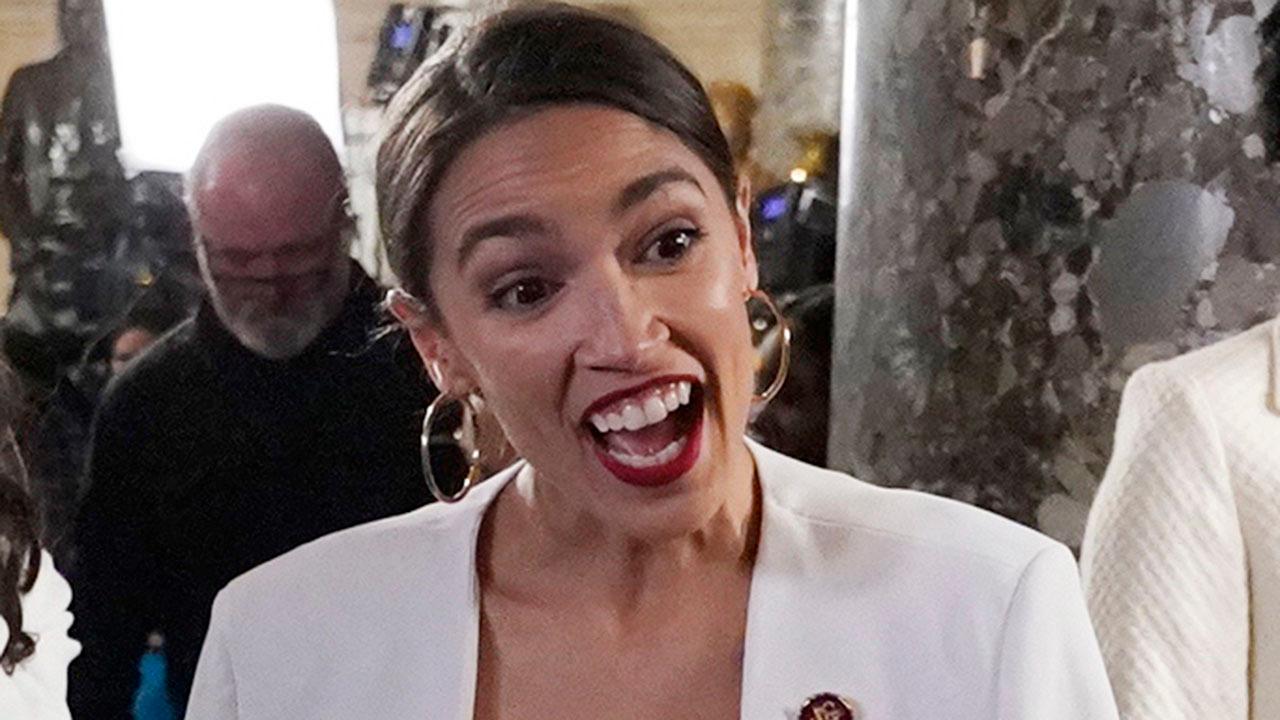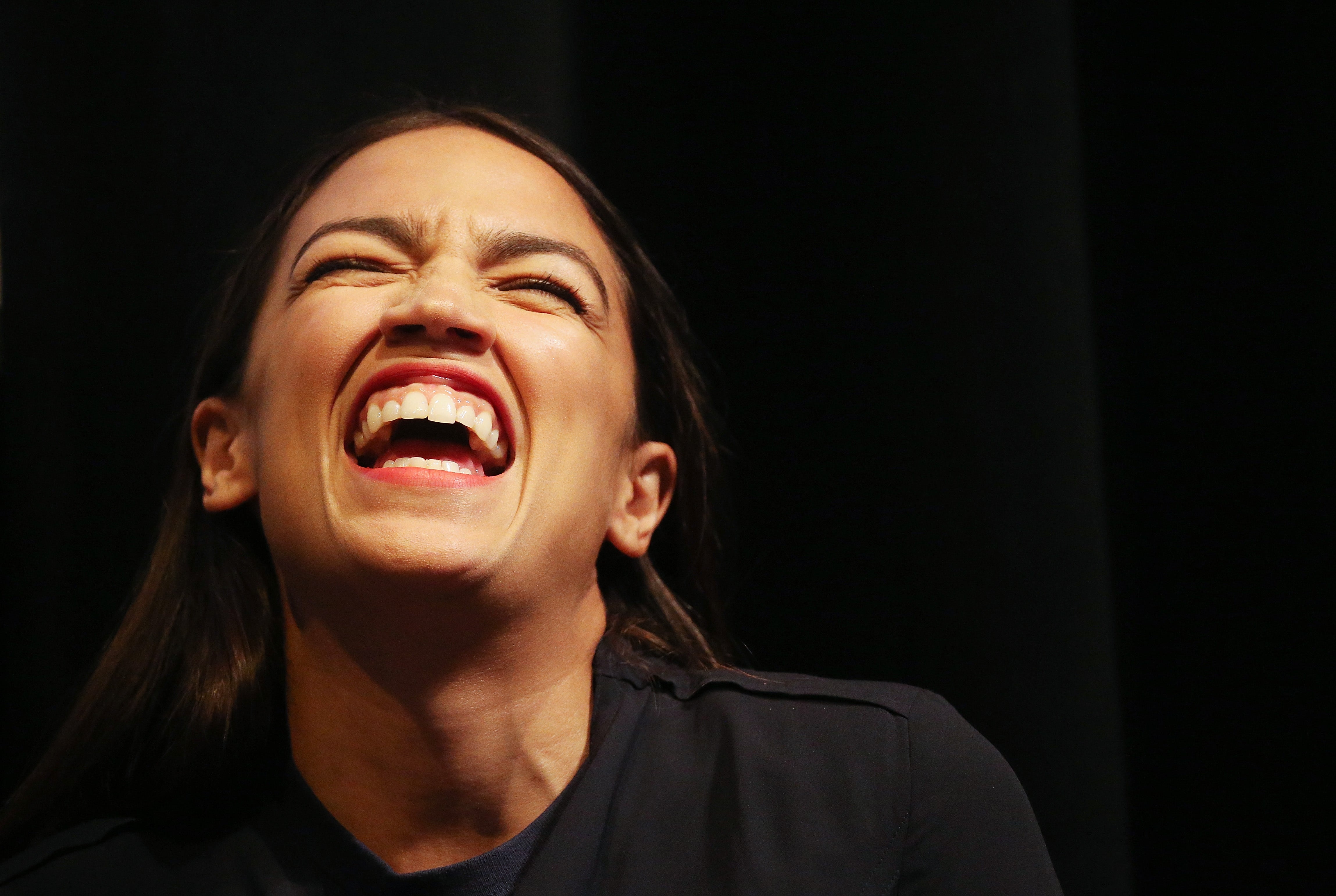Is AOC Stupid? Debunking The Claims & Truths
Is the political landscape becoming a breeding ground for intellectual laziness, where complex issues are reduced to simplistic soundbites and the nuances of policy are lost in a sea of manufactured outrage? The current discourse, often characterized by ad hominem attacks and a dismissive attitude towards opposing viewpoints, suggests a worrying trend towards superficiality and a declining capacity for critical thinking.
The echoes of this phenomenon resonate across the political spectrum, amplified by the immediacy of social media and the echo chambers that foster ideological polarization. It is a terrain where accusations of intellectual inadequacy are frequently weaponized, and where the ability to engage in thoughtful debate appears to be increasingly undervalued. The focus often shifts from the substance of arguments to the perceived character flaws of the individual presenting them, further eroding the foundation of constructive dialogue. This dynamic isn't merely a matter of opinion; it has demonstrable consequences for the quality of our public discourse and the efficacy of our democratic processes.
Consider the recent debates surrounding economic policy. Instead of rigorous analysis of complex models and a discussion of trade-offs, we often see the simplification of intricate systems into easily digestible narratives. Terms like "socialism" and "capitalism" become loaded labels, deployed to shut down debate rather than to foster understanding. The details of specific proposals, the potential unintended consequences, and the range of alternative viewpoints are often overlooked in favor of emotional appeals and ideological posturing. This isn't to say that economic debates should be sterile and devoid of passion. However, a reliance on simplistic narratives ultimately hinders our ability to make informed decisions and to craft policies that serve the common good.
In the realm of foreign policy, the same patterns emerge. Geopolitical complexities are often reduced to simplistic good versus evil narratives, overlooking the intricate web of historical factors, cultural nuances, and strategic considerations that shape international relations. Nuance is sacrificed at the altar of public opinion, and diplomacy is often supplanted by a reliance on rhetoric and posturing. The consequences of these actions can be far-reaching, from miscalculations leading to conflict to a diminished ability to address global challenges collaboratively.
Furthermore, the role of the media in shaping the public discourse cannot be ignored. The relentless pursuit of clicks and views, coupled with the pressures of a 24-hour news cycle, often incentivizes sensationalism over substance. Complex issues are presented in abbreviated soundbites, and the pursuit of objective reporting is sometimes overshadowed by the desire to generate controversy. The result is a public that is ill-equipped to navigate the complexities of the modern world and prone to accepting simplistic explanations for complex problems.
The term "intellectual honesty" appears to be at stake. Intellectual honesty entails the consistent practice of questioning one's own beliefs and assumptions. It requires a willingness to seek out and consider opposing viewpoints, to acknowledge the limitations of one's own knowledge, and to avoid distorting or misrepresenting evidence to support a predetermined conclusion. It requires being open to changing one's mind in the face of new information. Its a commitment to truth, to seeking it even when its uncomfortable, inconvenient, or challenges deeply held beliefs. It's about the courage to say, "I don't know," and the humility to admit when you're wrong. The absence of this type of honesty is palpable in many of the most heated debates of the day.
The consequences of this erosion of intellectual rigor are profound. It leads to a breakdown in civil discourse, making it more difficult to find common ground and to address the pressing challenges facing society. It hinders our ability to learn from each other, to develop creative solutions, and to build a more just and equitable world. It undermines the foundations of democracy, which depends on an informed and engaged citizenry. It also creates an environment where demagogues and charlatans can thrive, exploiting the public's ignorance and insecurities for their own personal gain.
The path forward requires a renewed commitment to intellectual rigor and critical thinking. It requires a willingness to engage in thoughtful debate, to seek out diverse perspectives, and to challenge our own assumptions. It requires a focus on facts and evidence, and a rejection of simplistic narratives and emotional appeals. It requires a more responsible media, committed to providing accurate and balanced information, and an educated citizenry equipped with the skills and knowledge necessary to navigate the complexities of the modern world.
This is not a simple problem with a quick fix. It requires a multi-pronged approach, encompassing education, media literacy, and a fundamental shift in the culture of political discourse. Educational institutions must prioritize critical thinking skills and provide students with the tools they need to evaluate information, identify biases, and form their own informed opinions. Media outlets must prioritize accuracy, objectivity, and a commitment to providing context and nuance. The public must learn to be more discerning consumers of information, to question the sources of their information, and to resist the allure of simplistic narratives. It's a call to action. It is a challenge. It is a necessity for the survival of our society.
The question before us is not simply about the intelligence of individuals but rather about the collective capacity of our society to engage in thoughtful and productive debate. The current trends are disconcerting. The challenge lies not in assigning blame but in recognizing the underlying dynamics that contribute to the problem and in working together to reverse these negative trends. The stakes are too high to ignore the signals of intellectual decline. If we do not address this problem, the future of our democratic institutions and the health of our society are at risk.
The following table, for illustrative purposes, presents a hypothetical scenario where we can examine relevant biographical data:
| Category | Details |
|---|---|
| Full Name (Hypothetical) | Alexandra "Alex" Ocasio-Cortez |
| Date of Birth | October 13, 1989 |
| Place of Birth | Bronx, New York City, New York, USA |
| Education | Boston University (B.A. in Economics and International Relations) |
| Political Affiliation | Democratic Party |
| Current Position | U.S. Representative for New York's 14th congressional district (since 2019) |
| Previous Occupation | Bartender, Educator |
| Key Political Issues | Green New Deal, Medicare for All, Affordable Housing, Climate Change, Social Justice |
| Notable Achievements | Youngest woman to serve in Congress, prominent voice on social media, driving force behind the Green New Deal proposal. |
| Controversies | Criticism of her policy proposals, some public statements and social media posts have been subjects of scrutiny. |
| Public Image | Often perceived as a progressive firebrand, a powerful advocate for her constituents, a representative of a new generation of politicians. |
| Website/Reference | Official Website |
The context of the discussion also highlights the importance of understanding how information is created, distributed, and consumed in the age of digital media. The rise of social media has fundamentally altered the way in which we communicate and interact with each other. Platforms like Twitter, Facebook, and Instagram have become powerful vehicles for disseminating information, shaping public opinion, and mobilizing political movements.
However, these platforms are also susceptible to manipulation and disinformation. The algorithms that govern these platforms often prioritize engagement over accuracy, leading to the spread of false and misleading information. The spread of "fake news" has become a significant threat to the integrity of our democratic processes, as it can erode trust in traditional sources of information and make it more difficult for citizens to make informed decisions.
The concept of intellectual humility is of utmost importance. It entails recognizing the limits of our knowledge and the possibility that we may be wrong. It requires a willingness to listen to and learn from those with different perspectives, even when those perspectives challenge our own beliefs. It involves acknowledging that we are all fallible and that no single individual or group has a monopoly on truth. It is the recognition that complex issues often have no easy answers and that arriving at the best solutions requires a collaborative effort that is based on mutual respect and a shared commitment to evidence-based decision-making.
Education plays a vital role. A well-rounded education, that includes instruction in critical thinking, media literacy, and civics, is essential for developing the skills and knowledge necessary to navigate the complexities of the modern world. Critical thinking skills enable us to evaluate information, identify biases, and form our own informed opinions. Media literacy equips us with the tools to assess the credibility of sources, identify propaganda, and understand the ways in which media can be used to shape public opinion. Civics education provides us with an understanding of the principles and institutions of our democratic system, and equips us with the knowledge and skills necessary to participate effectively in civic life. Education provides a foundation that needs to be fortified.
Furthermore, the responsibility does not rest solely with individual citizens. The media and political leaders need to play a constructive role. The media should prioritize accuracy, objectivity, and context in their reporting. Political leaders must resist the temptation to exploit division and to appeal to the lowest common denominator. They should work to promote civility and reasoned debate, rather than engaging in personal attacks and inflammatory rhetoric. This is a call for responsible behavior. This requires the commitment of all actors in the political landscape to prioritize the long-term well-being of our society over short-term political gains. It is a fundamental requirement for a healthy democracy.
The ongoing erosion of intellectual rigor presents a significant threat to the health of our democracy and the well-being of our society. The trends toward simplification, the emphasis on emotion over reason, and the weaponization of information all contribute to a climate of distrust and division. Addressing this challenge requires a concerted effort from individuals, educational institutions, the media, and political leaders. We must cultivate critical thinking skills, embrace intellectual humility, and promote civil discourse. Only by working together can we hope to overcome these challenges and build a more informed, engaged, and democratic society.
Ultimately, the future of our society depends on our collective ability to engage in thoughtful and productive debate. The capacity to think critically, to consider multiple perspectives, and to engage in civil discourse are essential for navigating the complexities of the modern world. The time to act is now. The stakes are high. The future of our democracy depends on it.


